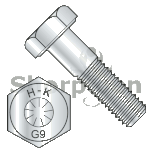What Do You Know About Carriage Bolts?
We all understand what bolts are. These are the components used to join two or more materials together. Fasteners or bolts come in a vast variety today. Different bolt types each have a unique set of characteristics, benefits, and use cases. The carriage bolt is one such often used kind of bolt. Coach bolt is another name for these bolts. The carriage bolts can be of numerous sorts, much like other bolts. What do these various coach bolt types mean? They are utilized where? The following post contains the solutions to these queries. Continue reading to learn more.
Tip: Get the best prices on fastener online at Korpek. Buy screws, nut bolts, washers & anchors at best prices here.
How do carriage bolts work?
Application-specific bolts that are suitable for use in applications like the construction of wood products, wood base materials, and carpentry are occasionally necessary. Carriage bolts are a type of bolt that has been specifically created for these uses. These bolts were employed in the construction of carriages and their wheels earlier in the 1800s. They derive their name from there. Different designs and head and neck forms are available for these bolts. We'll discuss the various bolt head types, their characteristics, and their uses in the section that follows.
Different Carriage Bolt Types, Their Characteristics, and Uses
Following are some of the most popular carriage bolt varieties, along with information on their characteristics and potential uses:
- These carriage bolts have a round head and a ribbed neck and are constructed of low-carbon steel. These coach bolts have a circular head and serrated or ribbed shoulders. They are primarily utilized in wood, plastic, and soft, ductile metals.
- These bolts have a square-shaped shoulder and a short neck with a round head. They are typically fabricated from low- or medium-carbon steel and have a uniform thread pitch. These bolts can be used with sheet metal because of their small necks, which prevent obstructions that a standard-sized neck might cause.
- As the name implies, they have square necks and flat heads, which have a lower profile on the top or front of the fastening than round head bolts do. These coach fasteners were created especially for the garage door sector. They can, however, be utilized in other ways.
- Fin Neck: Low carbon steel is typically used to make the fin neck carriage fasteners. These fasteners have a flat bearing surface and a circular head. These bolts' bearing surfaces are at a 90° angle with their shanks. Thin plywood is the primary application for fin neck bolts.
As the name implies, they have square necks and flat heads, which have a lower profile on the top or front of the fastening than round head bolts do. These coach fasteners were created especially for the garage door sector. They can, however, be utilized in other ways.
Fin Neck: Low carbon steel is typically used to make the fin neck carriage fasteners. These fasteners have a flat bearing surface and a circular head. These bolts' bearing surfaces are at a 90° angle with their shanks. Thin plywood is the primary application for fin neck bolts.
If you are looking for a Fastener, visit korpek.com.


Comments
Post a Comment